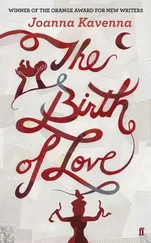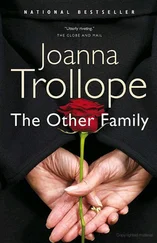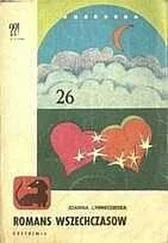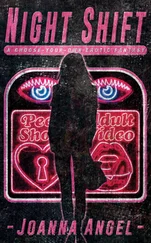At Kensington Gardens the light was trickling through the branches of the trees, and even the dullest objects, benches, bits of bollard, had a halo around them. She crossed a wide lawn with the palace at her back. She walked around the perimeter of the lake, eyeing the white water. She was walking towards the sculpture of a man leaning backwards on a horse. When she came closer she saw it was called Physical Energy , and someone had written above that, Human Imagination. She heard the slurred whisper of wind in the grass. It really was an ending, she thought, with Liam walking down the aisle and her overdraft so seriously gone. There was a definite sense of culmination to the day. A phase was passing, in her own unique and miniscule life. She stared across the park, at the lines of oaks and trees with their branches pruned into stumps. The solid trunks, matted with moss, made her happy for no reason at all, except that they were old and grained with age. It’s the irregularity of the trees that makes the park so beautiful, she thought. If they were standing in rows it wouldn’t be as fine. That decided, she walked along a thin path, and found herself at a crossroads. The signs said: Peter Pan. Italian Fountains. Serpentine Gallery. Queen’s Temple. Flower Walk . The signpost made her smile, with its careful options for pleasure, and she crossed the road and stood above the river, looking over a pavilion with white columns and the slung ring of the memorial fountain. In the background, above the buildings of the centre, she could see the London Eye. There was a Labrador running along the path, and behind it ran — more slowly — a batch of aged joggers. They went past her on sinewy legs. She heard distant sirens and the background hum of traffic, planes whining in the clouds.
It was getting late already, and she couldn’t think where the day had gone. Her panic had propelled it forward, this sense of culmination. The park was almost empty. She passed a flock of geese, and some grebes — the word came to her, though she wasn’t sure what they were — with white faces. For quite some time she sat on a bench, staring at a blank page, pen in hand. The ducks were dipping their heads in the water, spinning slowly around. Temp for Soph, she thought again, and wondered if that was what it meant. Or was it TEMP of SOPH? Then TEMP wasn’t time, it was temple. TEMPLE OF SOPHOS, she thought. TEMPLE OF WISDOM? All this running around and it was under the bridge, in the folds of the Westway, all along! The entrance to the meaning of things — she only had to find it. She only had to furnish herself with a few of the basics, and then the sign was there. Displayed vividly, hardly a cryptic clue at all! She was trying to convince herself, but something didn’t work. She couldn’t think clearly at all; her thoughts couldn’t alight on a single theme. Always there was the sense of the day drawing on. While you wait for Andreas to get home, write this article for Martin White. At least do that, do that now . So she stayed there with her pen and paper and after an hour she had made the startling discovery that she couldn’t write the article. The same old problem. She sat there, livid with frustration and then she wrote: I suppose I thought I should understand things better. I spent my time explaining things to other people. It seemed ridiculous, to trot out other people’s ideas while having none of my own, no sense of things at all. And I was concerned with strings of life, she wrote. In the universe, there is dark matter, they have little idea what it is. Imagine! No idea at all! This substance, quite beyond us all. That troubled me and I wanted to find out more. But I’ve realised that if you really want to do this — really want to strip yourself down and plunge into the depths — you have to be prepared to be Diogenes, or worse. Worse than him, even! You have to be prepared to become a real old tramp on a bridge. And she wondered if the toad-face was Diogenes; she wondered that while she tore up the piece of paper and scattered the pieces on the floor.
TEMP is the TEMP that means nothing at all , she thought. SOPH means the SOPH that is Stop Oh Please Help! Stop now! Temple of Wisdom. Something on the stones. There was a burst of music from inside a car, and she heard the sound of hooves on the riding track. Now is definitely the time , she thought. Surely now, you can think of something? She sat for a while longer, and then she wrote: Really, it’s the furniture that will save you. The rest you can try — Jess, Andreas, your father, but that furniture money is the only actual claim you have. It’s a just claim, and Liam has been inexplicably reluctant. It’s not as if the man lacks money! Just go and see him. Be very calm. Present a coherent petition. But the thought of that made her palms sweat and she lost her grip on the pen. Still it was a fine day. She looked across at the taut shapes of the trees and the water glinting like hammered steel. In the distance she saw the Albert memorial, newly repainted, bright with gilt. A man stood and stretched. He had been slumped on a bench, reading a paper. Now he shook out his jacket and slung it over his shoulder. He had a small face, his features packed close together. He looked happy enough. Really it was impossible to tell. Blurred and in the distance she saw a woman coming along the path. As she approached, Rosa heard her shoes. She was tapping along like a bird. The sun was shining on the windows of the houses and she stared up at the patterned blue and white of the sky, clouds moving slowly. When she looked again the woman was still tapping towards her. The sound stopped Rosa’s thoughts. All she could hear was this rhythmic tapping and she noticed the woman was drawing a dog along with her, a small black and white mongrel which was snuffling into piles of leaves and litter. The dog snuffled under a rubbish bin, and the woman yanked it away. Then they came along again, each with their own sound, the dog panting and the woman murmuring to it in a low voice.
Hunched over her notebook, Rosa wrote: there’s a tendency — we all share it — to invent a false image of ourselves as an exceptional phenomenon in the world, not guilty as others are, but somehow justified in sinning because one is inherently good. Everyone else is damned and fallen but one — me, myself — is good. This is quite self-righteous, it leads to misunderstanding, not only of oneself but also of the nature of man and the cosmos. The goal is to disperse the need for such life ignorance, by reconciling the individual consciousness with the universal will. This is effected through a realisation of the true relationship of the passing phenomena of time — you, this woman, her dog — to the imperishable life that lives and dies in us all.
Then she wrote, Dear Rosa, This won’t help you at all. Stop writing immediately, close your notebook and go and get some money . She saw a flock of geese honking on the path, aware of the approach of the dog. The dog was moving towards them, and though the woman tugged him backwards, the geese, honking violently, vituperative with panic, lifted themselves into the air and flew across the water. They settled on the other side. Governed by instinct alone, she thought. Their own imperative. Doing precisely what is expected, acting in accordance with their conditioning. When Tolstoy watched the peasants, and found faith, it was something like that he saw. He understood it as faith, but it was an assessment of the real bounds of life, of life lived without comforts, or illusions, rather than in the pampered reality-denying rooms of St Petersburg society. Because these peasants lived this life lacking in artifice, or the degree of artifice enjoyed by a Russian aristocrat, Tolstoy assumed that faith must be a natural condition of life. She saw his logic, though she couldn’t follow it. She felt there must be a way of living that was germane and inevitable, some natural mode she and the rest of the toads had forgotten. The woman walked past, tapping her heels along the concrete and dragging her dog behind her. ‘Come now,’ she said to her dog. ‘Come immediately, now.’
Читать дальше












